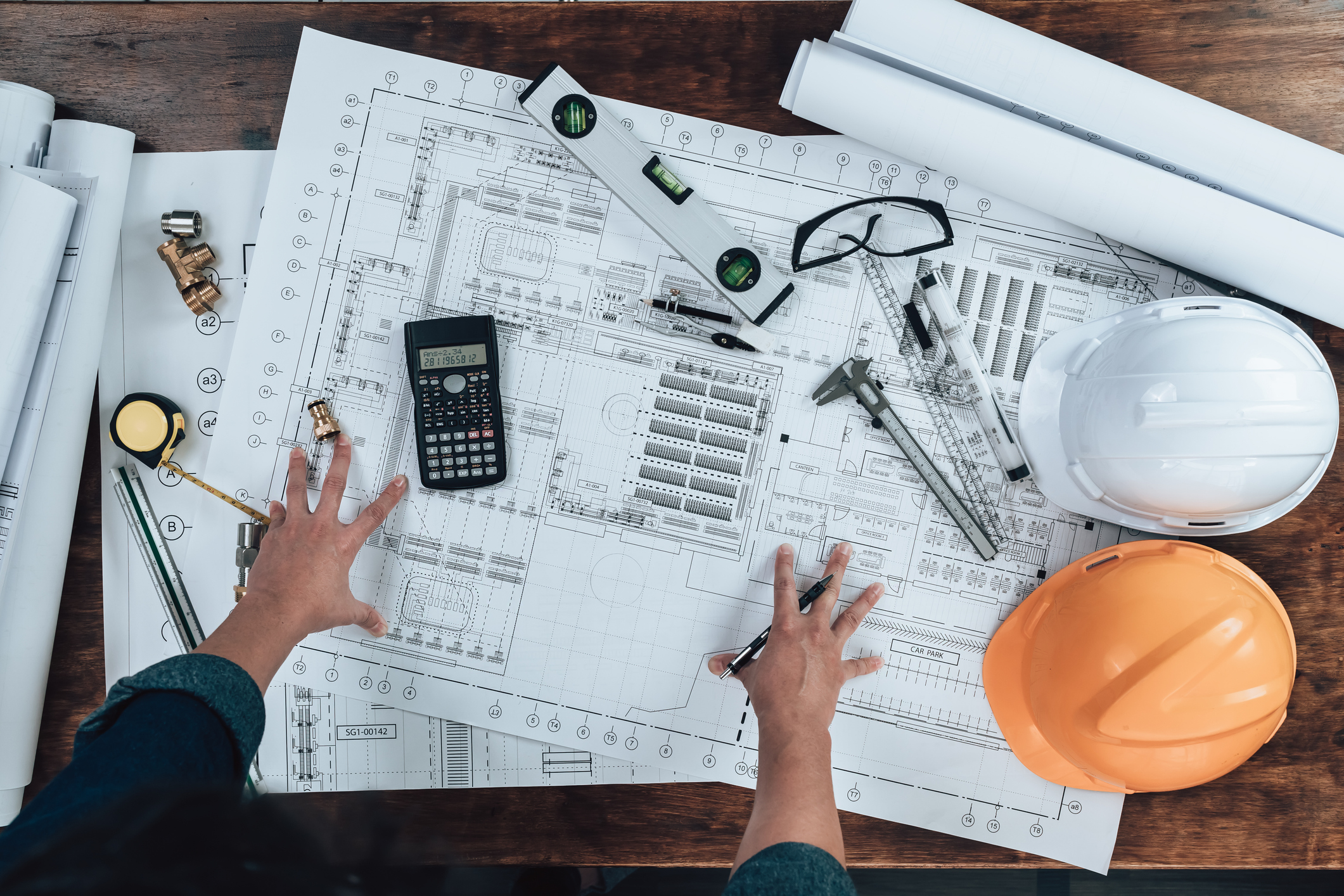
I’m a Building Safety Professional – Here’s How We Can Best Work Together
The path to a positive working relationship with building safety professionals starts with information, explanation, demonstration and polite discussion.
Bradley Nicholson, Manager of Building Standards for Iredell County in North Carolina, wants contractors and homeowners to know one thing: he does not enjoy failing inspections.
“We would much rather spend some time with a contractor on the front end rather than turning them down on the back end,” he said.
Nicholson isn’t the only one – he is among the many building safety professionals who want people to know how they can best work together. For week 3 of Building Safety Month, the International Code Council spoke to five building safety professionals to get their thoughts on how to do just that. To read about what keeps building safety professionals up at night, click here.

Tips on How to Work with Building Safety Professionals
“Please Tell Us Absolutely Everything”
Jason Everage, Chief Building Official for the City of Fayetteville, NC, has found that he rarely receives the full picture ahead of inspection. To avoid any surprises, he often has one simple request: “Please tell us absolutely everything.”
Everage said that contrary to what some people might think, the details they provide won’t derail a project or increase its costs. “But it gives our staff an idea of what we’re going to see,” he affirmed.
“Start With Permit Technicians”
Jonah Michaels, Commercial Plans Examiner for the City of St. George, UT, recommends that homeowners and contractors direct all initial questions to their local permit technicians.
“Permit technicians have a wealth of knowledge,” said Michaels. “They are well-trained individuals who can answer most of the questions. It’s when things get more technical that the permit technicians can either get a planner, building inspector or building official, to answer.”

“Have Realistic Expectations”
Kyley Flynn, Plans Examiner II for the City of Arvada, CO, has a lot of advice for how people can improve their working relationship with building safety professionals. Her first tip is for homeowners. To read about how to stay safe at home, click here.
“Have realistic expectations of what the process is,” she advised. “Realistically, you’re not going to get approval on plan review or your inspection the first time. They fail the first time across the board probably 85 to 90 percent of the time. Plan your time accordingly and plan for some extra money in case you need to do something different.”
“Show Me You Know the Code”
Flynn also has some advice for design professionals.
“If I could tell them anything, it would be to please show me that you know the code by referencing things correctly,” said Flynn. “We get a lot of instances where they say, ‘Oh, it’s a really simple project, I know it’s going to meet this requirement,’ and they leave it at that. They don’t want to put so much detail on the plans, but we need those details to show compliance.”
Flynn stressed the importance of clarity across all plans, which she described as a map for anyone who may need to read and understand the project.
“Anyone off the street should be able to look at this and understand what level of the building is shown, what is the space being used for, what are the dimensions,” she said. “Remember that that the plans are going to be public record. The inspector and assessor’s office need to look at those plans later down the road. There’s also a component for your tax records. Anyone should be able to look at it and be able to see exactly what is going on.”
“We Love Code Debates!”
Flynn’s last piece of advice may come as a surprise to contractors who haven’t taken the time to properly communicate with building safety professionals.
“We love code debates!” said Flynn. “That’s something that is so cool about this industry. Seriously – challenge us. Go online and read up on the code. I love it when people come up to me and say, ‘Hey, I think you’re interpreting this wrong.’ I say, ‘Absolutely, no problem, let me check it out. Let’s look at it together.’”
Flynn added that the code is not supposed to limit what people do, it’s supposed to be open so everyone can try new products and new ways of doing things. She only wants to see that what is proposed will meet the intent of the code.
“I think that’s something else that people don’t get,” she said. “The code is not just for building safety professionals. It is there for you to read as well.”
“Make Sure Your Project is Ready for Inspection”
This one should go without saying – and yet, for some homeowners, it needs to be said.
“Make sure everything is done at the time the inspector comes,” said Don Sivigny, Supervisor of Education, Rules, Codes, and Grants programs at the Minnesota Department of Labor and Industry. “The last thing you want to do is have an inspector show up and it’s not ready. If you’re not ready, call and cancel the inspection.”

“Listen and Don’t Yell”
Sivigny has some additional advice for both contractors and building safety officials: don’t yell.
“Yelling at people does not help,” he advised. “It doesn’t do any one of us any good to holler at each other. If you’ve got an issue, talk about it.”
To that end, Sivigny frequently trains building inspectors on the importance of listening.
“I tell them, ‘We are not better than anyone else, work with these people,’” said Sivigny. “Listen to what they tell you – 99 percent of them aren’t going to lie to you, they just want to tell you why they’re doing it the way they are. The building official can accept an alternate method if he or she deems they are equivalent to the code.”
Sivigny said this is especially important for remodels of existing properties, which may not perfectly conform to current codes. Read more about transforming buildings with the International Existing Building Code® here.
“You may only get 35 inches on a landing when it’s really supposed to be 36 because it’s an existing situation,” Sivigny added. “I have to deal with that, and I’ll say, ‘Okay, give me this and we’ll accept it.’”
“Use Field Consultations Whenever Possible”
One of the ongoing themes among building safety professionals is the need for contractors to be proactive. It is always recommended that they ask their building department questions before problems arise.
Iredell County offers field consultations to any permit holder that can be scheduled at any time throughout the inspection process. The county also offers pre-construction meetings to design professionals.
“Contractors and inspectors are working toward the same goal: a safe, usable installation,” said Nicholson. “Most of the time, if plans are communicated to the inspection staff clearly before installation, the process generally goes a lot smoother for all parties concerned.”
For more information on how to best work with building safety professionals, check out Week 3 of the Code Council’s Building Safety Month campaign here.








